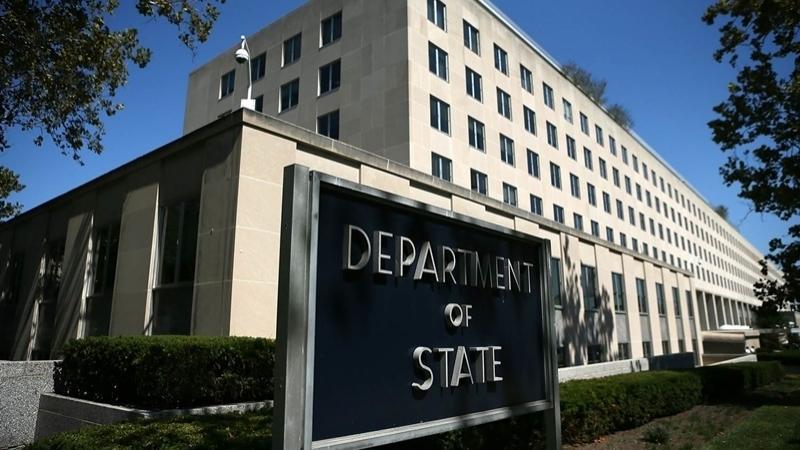US' unexpected diplomatic twist vis-a-vis Shusha Unexpected victory of reason
The diplomatic activity of Western powers in Azerbaijan strikes us with unexpected plot twists and turns. For example, we have just begun to get used to the absence of French Ambassador Anne Bouillon, and she is back. Paris recalled her a few weeks ago for consultations. As we know, such consultations can last for quite a long time, and this pause is intended to signal the accrediting party's deep displeasure with the actions of the ambassador's host country. However, the French hastened to end the pause, apparently deciding that the sun did not shine less in the capital of Azerbaijan due to the absence of Madame Ambassadrice.
Something similar happened to the US representative. Even, perhaps, the Americans have outdone the French in the art of drama - both in building up suspense and in the denouement of the plot, which even gives the most impressionable people something like catharsis.
Let's remind you how it went down.
For a very long time, everyone in the Azerbaijani expert and media environment has been wondering why the US ambassadors do not go to liberated Shusha. And just three days ago, current Ambassador Mark Libby shared this thought in an interview with Radio Liberty: "It is clear that the returned territories are a bit different. There needs to be more coordination. However, I don't want to be part of some show organised somewhere. So when the time comes to do it, I will do it".
Every word in this passage is confusing. What does it mean "returned territories?", what does it mean "slightly different" and what does it mean "a show organised by someone"? It seems that this is how the US ambassador decided to characterise the visits of representatives of diplomats accredited in Azerbaijan to Shusha organised by official Baku.

We will not dwell on this for long. Many people have already written about these words of the Ambassador, including our website. We would only add that in fact the Ambassador made inadmissible statements not only to Baku, but also to all countries, whose diplomatic representatives travelled to Shusha as part of large delegations. It turns out that the American diplomat, firstly, considers his colleagues from other embassies as participants of some show, and secondly, does not want to share with his colleagues the company and the road, albeit comfortable. Meanwhile, in this reaction of Mr Libby's, the irritation of impotence was also read. Realising that it was becoming more and more difficult to avoid the trip, the Ambassador, unable to change the essence of the challenge, decided to change its form - he would, they say, go there when he wanted to, not when Baku wanted him to.
And suddenly what we see - before we could rub our eyes after a Sunday nap, we see a photo of Mr Ambassador with a beaming smile, taken not somewhere, but in the cultural capital of our country, Shusha. Well, the deed is done, the awkward situation has been overcome, and it is time to turn the page. At the same time, it is worth noting that it was Azerbaijan that showed wisdom and patience in this situation. Three and a half years have already passed since the liberation of Shusha. The longer it took, the more indecent the reluctance of diplomatic representatives of some countries to visit this Azerbaijani city became. Washington realised that further delay in this matter would simply reduce the interaction between the US and Azerbaijan to a minimum level. This, in turn, would mean that the White House was in a losing position before Russia, Iran, the UK and even the European Union and Germany. Brussels and Berlin, by the way, despite Paris' efforts, are trying to formalise their own relations with Baku.

Washington could not afford the luxury of being left out of regional events and decided to jump on the footsteps of the train rushing away. The Americans were very much afraid of sharing the fate of the French. This fear was so strong that the Americans had to instruct the ambassador to make the trip before November this year, that is, before the US presidential election. After all, it is no secret that one of the reasons for the long neglect of trips to Shusha is the unwillingness of the Democratic administration to lose the votes of the Armenian diaspora. At the last moment, Washington decided that Azerbaijan as a partner was more important than Armenians as votes. By the way, this is an interesting case when the state interests of the Democrats took precedence over party interests. And this, on the one hand, characterises the Democrats well, and on the other hand, once again proves the importance of Azerbaijan in modern world politics.








